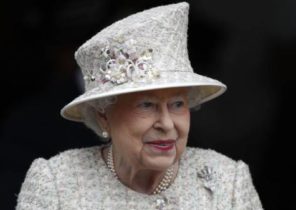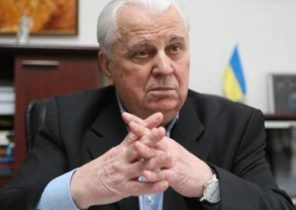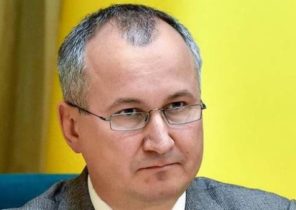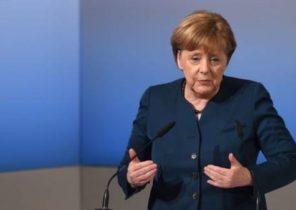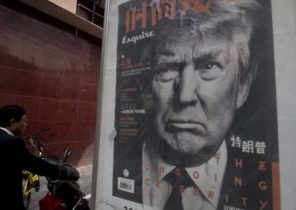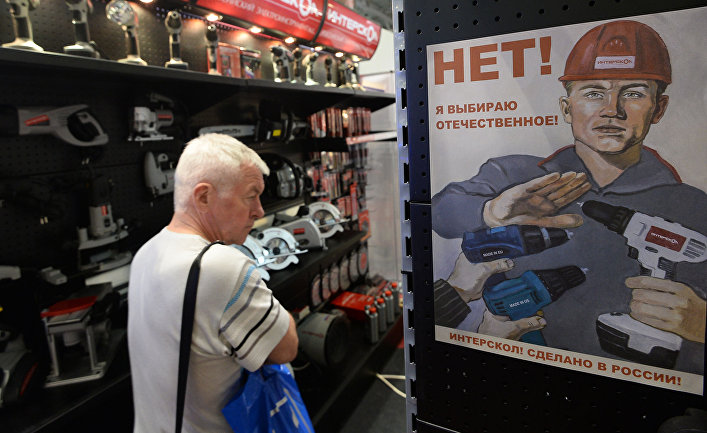
The European Union plans to extend the deadline for freezing accounts and visa ban against key aides of Russian President Vladimir Putin, accused of destabilizing Ukraine. Meanwhile, Donald trump is considering the possibility of establishing relations with Moscow.
Four EU officials said European governments are meant to mid March to extend for a further six months the period of validity of sanctions against more than 100 citizens of Ukraine and Russia. They include Arkady Rotenberg, co-owner of SMP Bank and InvestCapitalBank, as well as Yuri Kovalchuk, the largest shareholder of Bank “Russia”. EU officials agreed to report this information on the condition of anonymity because the information is confidential.
Trump, who on 28 January held telephone talks with Putin, left the question about the possibility of easing U.S. sanctions against Russia open. Former US President Barack Obama imposed sanctions against Russia, with the support of the European Union after 2014, Putin annexed Crimea and supported separatists in Eastern Ukraine.
“Europeans are waiting to see what trump hand grenade thrown into the Russian-Ukrainian pond, said Michael Emerson (Michael Emerson), a foreign policy expert of the Centre for European policy studies CEPS in Brussels. European politicians and diplomats should be careful and try to maintain the status quo.”
The planned extension of the sanctions demonstrates the desire of the EU to continue to follow the political course which the Chancellor of Germany Angela Merkel and French President Francois Hollande was developed together with Obama. European sanctions against Russia have much in common with U.S. sanctions, and also include a number of limitations — the validity of which was extended just before joining trump in the position of President of the United States January 20 — covering the financial, defense and energy sectors of the Russian economy.
After an hour phone conversation, trump and Putin last Sunday, the press Secretary of the White house Sean Spicer (Sean Spicer) said that while the US has not made a decision on sanctions against Russia and that the issue was generally not raised in the conversation between the two leaders. In January Bloomberg conducted among 27 economists in a survey, the results of which indicate a 60% probability that within the next 12 months, States will begin to soften anti-Russian sanctions. For comparison, the likelihood that the EU will begin to ease sanctions in the next 12 months is only 44%.
On Saturday, February 4, trump and his Ukrainian counterpart Petro Poroshenko discussed the escalation of hostilities in the East of Ukraine, as well as the possibility of strengthening the strategic partnership between the two countries, as evidenced by the transcript of their conversation. “We will work with Ukraine, Russia and all other parties to help them restore peace,” said trump.
While still a presidential candidate from the Republican party, trump has made many controversial statements regarding Ukraine. In a TV interview in late July, after more than two years after the annexation of Crimea by Russia, he said that Putin “is not going to invade the Ukraine”. He also said he would consider whether to accept this fact of territorial seizure and that, if he becomes President, “we will establish relations with Russia.”
In the three-year war that in the East of Ukraine are government troops and Russia-backed separatists have been killed and 9.6 thousand people. It’s heating up again because the peace agreement in 2015, was signed with the support of Germany, France and Russia, did not bring the desired result.
The escalation of the conflict
30 Jan Poroshenko cut short his visit to Germany after the government in Kiev reported a sharp increase in the intensity of the fighting in the East of the country. Three days later, European Council President Donald Tusk (Donald Tusk) has expressed its concern about what is happening in Ukraine, claiming “a new level of intensity and cruelty” and once again referred to “the threat posed by Russian aggression”.
On the same day, US Ambassador to the UN, Nikki Haley (Nikki Haley) made a sharp criticism of Russia’s actions, calling the Ukraine situation “catastrophic” and blaming it all on Moscow. Noting that “we really want to improve relations with Russia,” Haley called for an “immediate end” to the Russian occupation of the Crimea.
Since the beginning of 2014 the governments of the EU demonstrated unity necessary for the imposition of sanctions against Russia in connection with its actions in Ukraine, for their expansion and for the extension of their actions. Skeptical countries such as Hungary, Italy and Cyprus, yet refrained from using its veto.
Legal claims
Some entered the EU sanctions even survived attempts to challenge them in court. In November last year, the General court of the EU upheld the decision on the freezing of accounts and visa ban against Rothenberg, who wanted to achieve their withdrawal.
Given the possible beginning of thaw in Russian-American relations and the continuing Russian attempts to weaken the political consensus behind the sanctions of the European Union, most likely, in the future, this unit is unlikely to retain the determination to issue the renewal of sanctions.
2 Feb Putin held a meeting with Prime Minister of Hungary Viktor Orban (Viktor Orban) in Budapest. During a briefing Orban said that EU sanctions against financial, energy and defense sectors of the Russian economy is the wrong approach to solving the problem, “non-economic in nature”. However, he also added that the lifting of sanctions should be linked to the fulfillment of the terms of the Minsk agreement.
According to Emerson from the Centre for European policy studies, trump — who questioned the value of the North Atlantic Treaty Organization, predicted that many countries will follow the example of the United Kingdom, and criticized the economic policy of Germany — may ultimately strengthen the commitment of the European Union on the issue of sanctions.
“Effect of tramp leads many Europeans to come to the conclusion that they need to make every effort to stay together — said Emerson, a former EU Ambassador to Russia. — It can work.”
